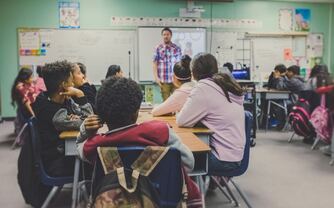 Photo by Kenny Eliason on Unsplash Photo by Kenny Eliason on Unsplash Hello, everyone!👋 There's a certain post that's been making waves on social media following the recent, heart-wrenching events 🌊💔. It was a radio host questioning why, in the world of law enforcement, there seems to be a resistance to acknowledge that not all officers are beyond reproach 🚔. This got my wheels turning about parallels in the teaching profession 🍎. This week, I dove into a Facebook group focused on a freshly launched leveled literacy program, courtesy of a famous pair in the literacy arena 👥📖. A glaring revelation? A staggering number of people, mainly teachers, seemed to have a severe misunderstanding of dyslexia 🤯. These are the very individuals blocking real learning for our young minds. I felt a strong urge to speak up, and so I did. Despite sharing thoughts and asking important questions, the response I got was less than ideal 🙅♀️. The group's moderator voiced their complaints publicly and rather childishly. The lack of substantial responses, peppered with hints of ignorance, was discouraging. #TheTruthIs 🗣: I've noticed that reading teachers seldom appreciate being questioned about their expertise. For them, a degree seems to automatically equate to expertise, no questions asked 🎓. The bewilderment on the faces of so many literacy instructors when questioned about their understanding of dyslexia, their certifications, and teaching abilities is unforgettable 😲. This post aims to answer a few recurring questions around reading and literacy, and share my thoughts on the matter 📝. Breaking Down 'Good' and 'Bad' Teachers ⚖️🏫We've all heard stories about the "great" teachers; underpaid, overworked, dedicated souls who pour their heart into their work. However, after going through that Facebook group, I'm beginning to see that teachers, like cops, are not all created equal. It's unrealistic to think that every teacher in every school is equally competent or effective. It's just not statistically possible 🔢. Let's be real; not every teacher is "good" at their job, and that's okay to admit. Leveled Literacy, Whole Language, and Guided Reading Demystified 🧩This post aims to demystify three terms that often pop up in these discussions. Leveled Literacy, according to Fountas and Pinnell, is a small group, supplementary literacy intervention for students who find reading and writing difficult 📚✍️. But here's the catch: it's not designed for students with dyslexia. They need a "language-based, multi-sensory, structured, sequential, cumulative, cognitive, and flexible" approach by an Orton Gillingham certified instructor, or a certified Wilson Language or Barton Reading teacher. The same goes for Whole Language and Guided Reading – none of these approaches are beneficial for a student with dyslexia 🚫. They need specialized attention from certified educators, not just any reading teacher. understanding Dyslexia 🧠💡Lastly, let's talk about dyslexia. Contrary to what some may believe, it is not a blanket term. The International Dyslexia Association defines it as a specific neurobiological learning disability, characterized by difficulties with accurate and/or fluent word recognition, poor spelling, and decoding abilities 📚. It is NOT a term to be used lightly or without understanding. Next Steps for Advocacy and Awareness ✊The road to adequate literacy education for all can be a tough one, but it's one worth what can i do?
Final Thoughts... Books put out by groups like Fountas and Pinnell are shiny and pretty. They offer teachers the flavor of kool aid they like to drink. The kind that makes the world rose colored and doesn't hold them accountable to the 1 in 5 students in their class with dyslexia. Maybe there is some child, somewhere who has benefited from whole language, but it is never going to be a child with dyslexia. <3, DW
0 Comments
Your comment will be posted after it is approved.
Leave a Reply. |
OTA AuthorThe Oak Tree Academy mission is to improve the quality of life of people with language-based learning disabilities and their families by developing programs and disseminating knowledge based on current research. Archives
April 2024
Categories
All
|
 RSS Feed
RSS Feed